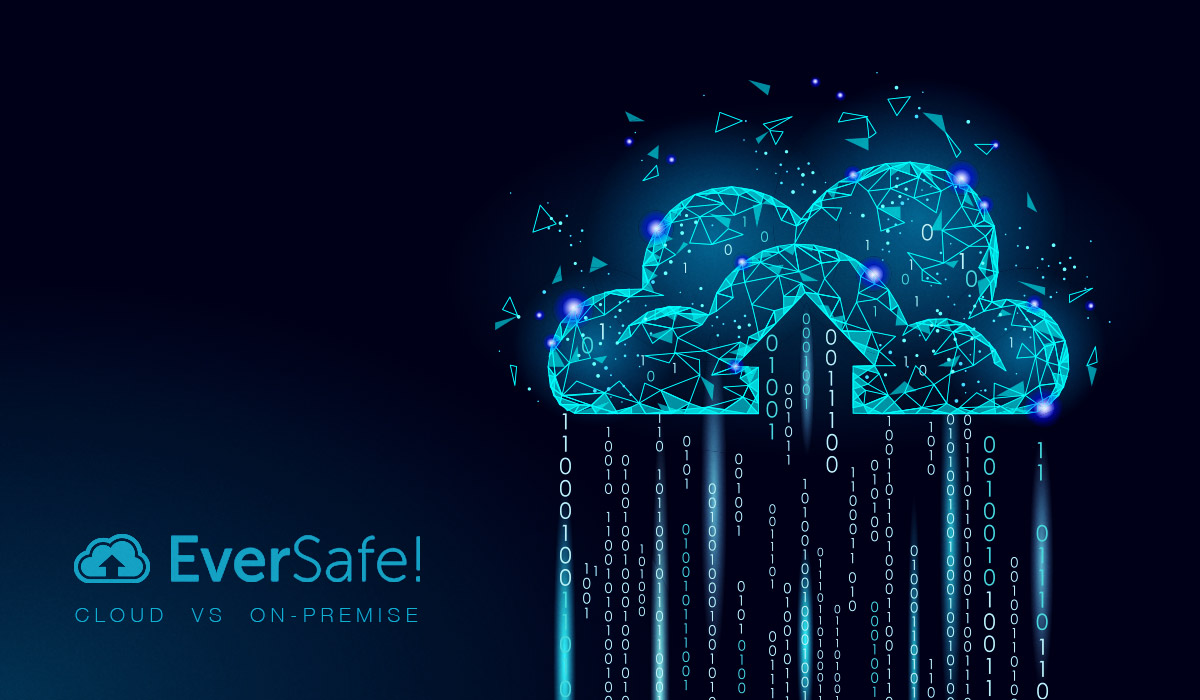Finding the System That Works Best for Your Business
For over two decades, technology in the workplace has advanced exponentially and has allowed companies to shift their operations from outdated analog to the dawn of the digital age of cloud technology. Still, some organizations rely on on-premise backup when it comes to protecting their most critical information. What is the best way to manage your computer and server backups and is one system better than the other?
The clear advantage lies within reactive disaster recovery cloud software. It is the best suite for your company’s unique needs. To help you decide, we have shared the pros and cons of both.
On-Premise Backup
One of the biggest appeals of analog or on-premise data backup is the physical control you gain over your backups. Keeping backup capabilities in-house ensures no third party has access to critical data or information. Even if you have internet connection issues, your data will be accessible.
On-premise backup systems are familiar and have been considered to be generally safe in the past. However, in-house systems may be more susceptible to data loss. With these systems, you risk losing critical data to natural disasters or human error.
Having large up-front and maintenance costs, on-premise systems can be more costly than cloud-based counterparts. Another major cost may include upgrades needed to accommodate your company’s growth. But the greatest cost of all, losing all of your most valuable data in a disastrous event.
Cloud Backup
Data security is a must when you’re looking for a data backup platform that benefits both management and employees. For example, the ripple effect of saved time across an entire company opens new opportunities for innovation—creating the mantra time is money. We can create a twofold effect if this time-saving cloud system is cheaper than current, timely on-premises systems.
Making them more cost-friendly, cloud-based backup systems require no on-site hardware. The cloud also offers greater scalability, allowing you to easily increase or decrease your storage as the needs of your company change. You only pay for the data you use.
With cloud backup, you do not need a dedicated IT staff, as everything is handled off-site by experts. Upgrades can be done quickly, allowing you to easily customize it for your company’s unique needs.
In the cloud, data is backed up regularly, minimizing data loss in disasters. Data and documents can be accessed and updated at anytime from anywhere, not just from the office.
While cloud-based backup systems are generally safe, there is a growing trend of cyber–attacks that threaten your data security. For cloud-based backup, ensure the company has malware and ransomware protection and a data recovery solution.
Wrap Up
On-premise and cloud-based backup systems both provide comprehensive services. These pros and cons can help you choose which works best for your business. Neither is entirely protected from disaster, so investing in an all-inclusive solution to protect your software and important data is essential.
Datix created EverSafe! because we know your business has no time to deal with lost data. EverSafe! is a comprehensive backup and disaster recovery solution designed to protect your critical business data and hardware, no matter if you host on-site or in the cloud. By using EverSafe! you ensure you are keeping your data safe no matter what disaster or issues you may encounter. Contact us today to begin your EverSafe! implementation.


